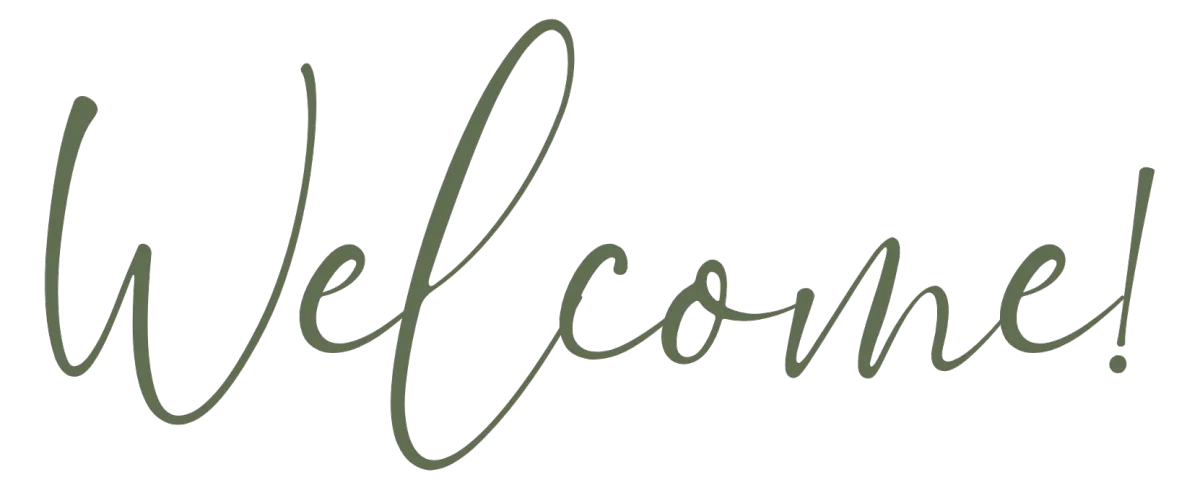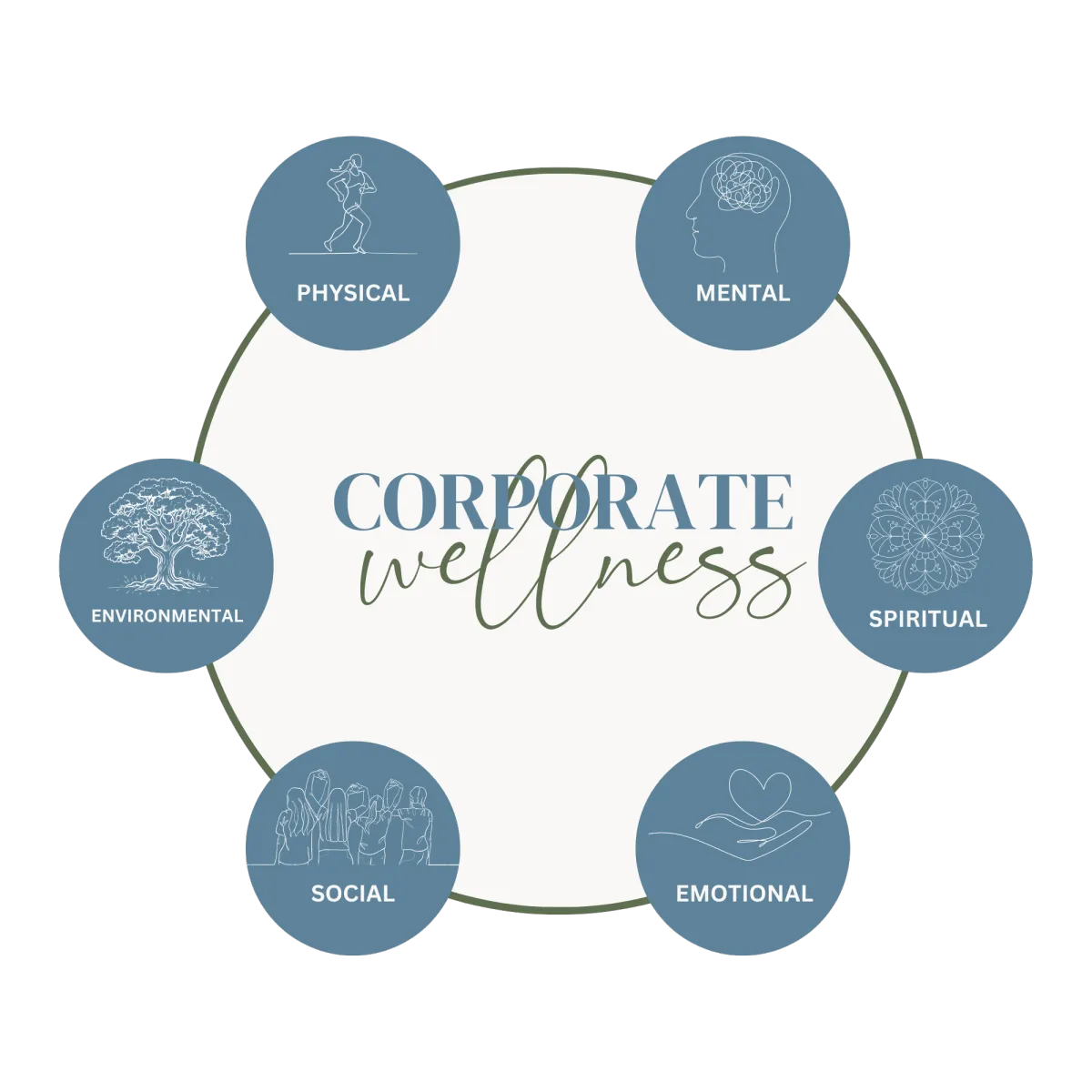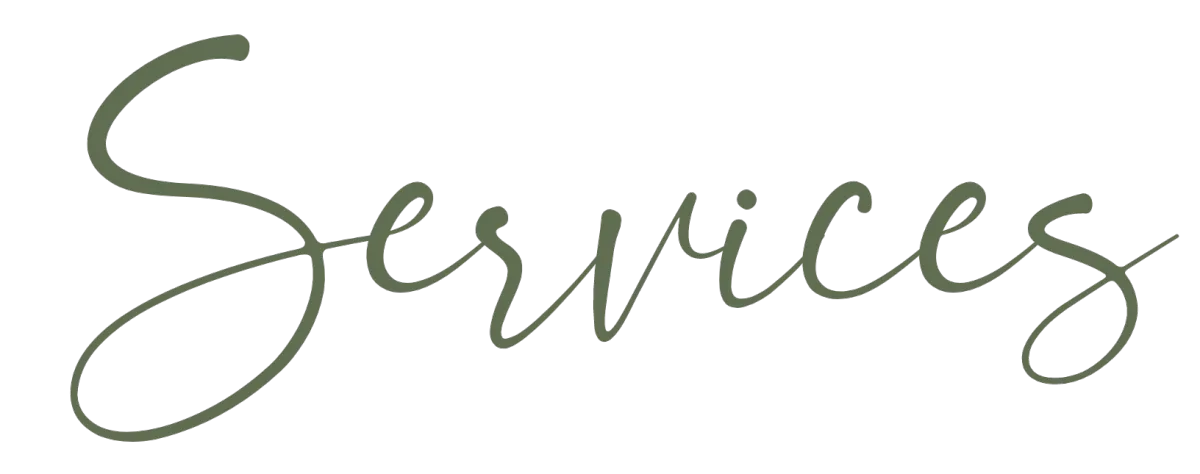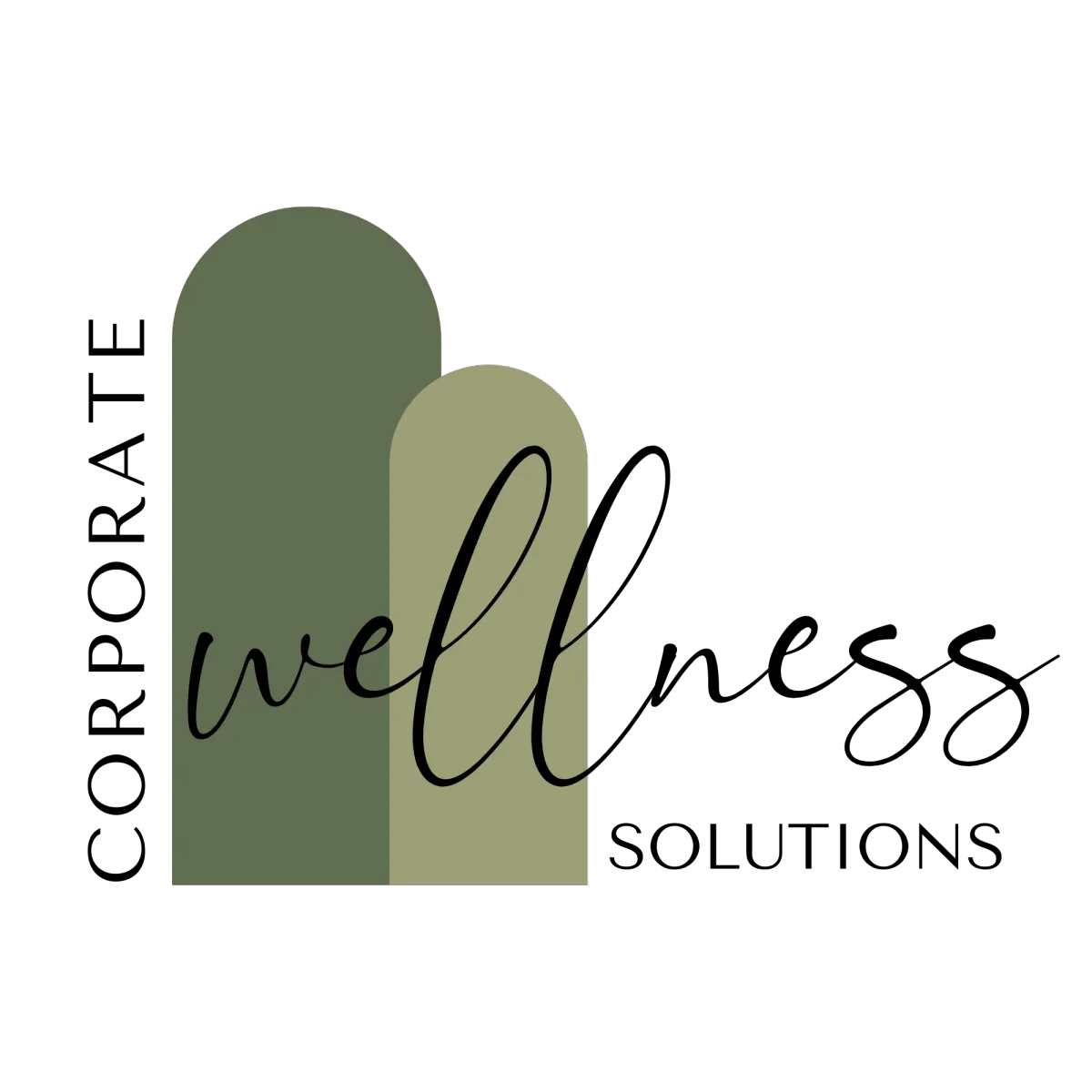
Australian businesses are now very aware that healthy, happy and connected employees offer them a
highly competitive commercial advantage.
Forward thinking employers ensure they effectively integrate employee wellness programs into their organisational fabric, cultivating positive behavior's and fostering a supportive culture that also addresses their governance requirements - from a legal, compliance, risk management and corporate social responsibility perspective.
We work with your business or department to understand, identify, manage and genuinely nurture and improve your
staff's health, wellbeing and potential,
and strengthen the internal connections, team bonding and ultimate success of your business in the process.
A WIN, WIN FOR BUSINESS AND EMPLOYEES!

We tailor our program to meet your needs. Our services include:
✅Identifying your Corporate Psychosocial Hazards and providing the guidance, tools and training your business needs to effectively manage them.
✅Understanding and effectively addressing the wider realm of internal psychosocial risks and compliance obligations (beyond OHS) - including Privacy Laws, Menopause friendly practices, Respect@Work, new Disconnect laws, Anti-discrimination, Harassment and Bullying, Fair Work practices including safe processes for domestic and family violence leave applications.
✅Assisting to develop the leadership, culture, knowledge, training, support & reporting obligations required.
✅Providing Workplace Health & Wellness Solutions and assisting to implement and manage them as required.
✅Creating tailored Wellness Programs that suit your personnel (including working with your business to develop and present your yearly wellness calendar, programs and promotion).
✅Improving staff connection, inclusivity, respect and relationships internally through the wellness programs and conga-line program.
Meet Our Team
Our team provides genuine and practical expertise in
psychosocial and wellness support, which will ensure your program is
truly effective, engaging and compliant:
✅Governance experts- Risk, Compliance & Board advisory
✅Training personnel
✅Psychologists with psychosocial expertise
✅External counsellors
✅Leadership and culture change experts
✅Human Resource experts
✅Men's support networks
✅Domestic Violence support and behaviour management specialists
✅Health and Wellness experts with specialists in oncology, menopause, grief, mental health
& separation/divorce support, nutrition, breathwork, yoga.

Susan Crain
Susan has a Law Degree and majored in Psychology, Counselling, Dispute Resolution. She has completed her Graduate Diploma in Corporate Governance and has advised Boards and Management on Corporate Health and Wellness, Compliance, Risk Management, and Complaints Management. She has received numerous Corporate Training Awards and runs successful Women's Wellness Events.
Susan has held board and board sub-committee positions with organisation's including Act for Kids, Greening Australia and Open Haven Ltd. She has worked as inhouse counsel for many Australian and New Zealand companies and most recently has been a consultant to Radford HR.m She has trained organisations including Tattersalls, Daimler Chrysler, Mater Hospital. She is also a Separation/Divorce support coach, author, and owner of Family Counselling Support Network and Separation Support Network.
Susan has seen first hand how highly effective corporate health and wellness programs can make an enormous impact on businesses operations, governance, profits and most importantly, their people.
Natalie Knight
Natalie has been practising as a Psychologist since 2001 and is a member of the Australian Association of Psychologists (AAPI). She is passionate about working with people and has a particularly strong interest in stress and burnout management, anxiety, trauma, resilience and designing and facilitating high quality physical and mental health and wellness awareness workshops.
Natalie applies her wealth of knowledge, training and expert psychological expertise to create scientifically supported and measurable service delivery to meet your business and staff needs.


Claire Kelly
Claire is a very well regarded and highly skilled nurse consultant, educator, and health and wellness coach, specialising in oncology/cancer and peri/menopause wellness. She has an extensive background in practice, education and training, program development and care coordination - working with women, workplaces and health professionals to support them with their unique menopause, cancer and midlife health needs. We are honoured to have her on our women's wellness panel.
www.middlehealth.com.au



CORPORATE TRAINING - psychosocial, health and wellness
National workplace safety legislation means the Board members and all employers must now take steps legally to identify, minimise or where possible, eliminate psychosocial hazards in the workplace. Psychosocial hazards refers to aspects of work which have the potential to cause psychological or physical harm.
Corporate Wellness Solutions offer small to large Australian businesses and government departments, education, training, frameworks, systems and programs in psychosocial hazard identification and management, which extends beyond compliance with just OHS. Our programs enable your organisation to legally and effectively address other specific Australian legislation and recommended best practices, which have a direct impact on employee psychological and/or physical harm. This includes but is not limited to Respect@Work, Right to Disconnect, Privacy, Fair Work Act, Domestic Violence leave applications, Menopause friendly initiatives, Anti-Discrimination, Harassment and Bullying.
We work with your organisation to develop really effective and engaging wellness programs that genuinely support your personnel. Our programs are able to be tailored according to the unique needs of each organisation and can be delivered online or in person to reach employees in the office, working from home, on the road, on-site, or in remote and regional areas.
Our trainers are not only human resource specialists, psychologists, counsellors, menopause coaches, domestic violence support personnel and wellness trainers, they are also experienced lawyers, compliance and governance experts who have trained staff, leaders and board members Australia wide.
We ultimately take the stress out of psychosocial related compliance, training and wellness programs for your business. We offer a diverse range of corporate wellness offerings, to inspire and enhance your employees mental and physical wellness, cultivate positive behaviours and provide solutions to foster a supportive and connected work environment.
In turn, our programs have proven to positively impact productivity, staff satisfaction, staff retention and overall business success.

Corporate Wellness Plans
We can make it easier on your business by helping your business to:
🌿Draft a Corporate Wellness Plan and calendar that is tailored to the needs, resources and interests of your employees AND
🌿Ensure the plan/program is easily implemented and maintained by your business to effectively create a wellness culture that is enjoyed and sustainable.

Good governance: Risk Management, Compliance, CSR & Culture
Corporate Governance can be summed up in 4 words - people, purpose, process and performance.
Risk management, compliance, culture and Corporate Social Responsibility (CSR) fall within the realms of Corporate Governance and are all ultimately the responsibility of the Board and Senior Managers.
They all require genuine commitment, resources, processes, training and operational support to be effective. In the event of a breach of any regulatory requirements, a highly effective governance and compliance program and carefully documented risk management system, will potentially be critical to reduce the risk to business and employees, as well as the personal liability risk to Directors and Senior Management.
This includes addressing bullying, harassment, discrimination, and sexual harassment (Respect@work), ensuring workplace health and safety, adherence to wider psychosocial obligations including the appropriate management of domestic violence support requests and a menopause friendly workplace, compliance with fair work processes and procedures, including disconnect legislation, ensuring adequate reward and recognition, and a genuine culture of health and wellness support is embedded.
The extent to which a company implements good governance practices can influence consumer and investor decisions, as well as potential employee, board and human resource outcomes. We provide effective guidelines on your governance obligations, especially as they pertain to health and wellness, in a way that is easily understood, implemented, documented and maintained.

Workshops, Seminars & Events
We run a series of specific health and wellness workshops and can tailor these to meet your business requirements. Most workshops can also be offered in webinar format, as required.
We regularly attend and present at strategic planning days, to assist boards and management to fully understand the realm of governance obligations as they relate to psychosocial culture, compliance, risk management and employee wellness.
Our team attend conferences and retreats to provide wellness workshops and activities, and we provide expert keynote speakers.
Our very popular, conga line program is a successful team bonding initiative, which is presented at many of these events, and has proven to inspire ongoing connection and collaboration, communication, and strengthen relationships within teams.

E-courses and Online Webinars and Training
We offer a range of complimentary e-courses, online webinars and training.
Please contact us for more details.

The Conga-Line Connection Program
Unfortunately, many businesses, especially since Covid-19, have reported a serious decline in internal staff connections. With many staff still enjoying flexible working arrangements, including a much higher number of people now working from home, businesses are struggling to find effective ways to reconnect with their staff and connections within and between teams. This has led to communication breakdown, poor collaboration, isolation, disconnect, lower morale and poor attendance.
Our Conga-Line Connection Program has lots of fantastic, fun and engaging ideas on how to get your staff up and moving again in a supported and connective way, regardless of where they are located.

External Wellness Service Registry
If applicable, we can assess your current external wellness service registry deliverables to determine if they are actually meeting the needs of your staff, merely providing band aid solutions, or at worst, adversely impacting your employees wellness by providing sub-standard service.
We can alternatively (or in conjunction with your external wellness service registry) provide you with access to expert external wellness support in various areas beyond what we offer in our programs and workshops. This includes access to psychologists, counsellors, coaches, peri/menopause support and clinics, men's specific wellness initiatives, domestic violence assistance, separation and divorce support and other key health and wellness service providers as and when your employees may require it.
Read our Blogs

What is Domestic Violence?
Domestic violence includes a wide range of behaviours usually between current or former partners, typically where one partner tries to control or dominate the other, or cause them to fear for their own, their children’s or family and friends personal safety or wellbeing.
Domestic and family violence and coercive control can impact anyone, regardless of age, ability, ethnicity, sexual orientation, gender, location and socio-demographic groups.
If you are concerned you or your loved one is experiencing domestic abuse, please look at the checklist below for assistance.
We can help you find the help you need. You are not alone! We can help discuss your exit strategy, get you access to specialist support, take legal steps to help protect you and your family.
Please also refer to our website for contact numbers for Australian emergency domestic violence services..
NOBODY EXPECTS VICTIMS OF DOMESTIC AND FAMILY VIOLENCE TO SUFFER IN SILENCE OR CONTINUE TO DEAL WITH ABUSE – NOT NOW, NOT EVER.
------
PHYSICAL OR SEXUAL ABUSE
Physical abuse involves causing OR threatening physical harm to control you, for example:
slapping, hitting, kicking, punching,
choking, suffocation or strangulation; anything that prevents you from breathing normally,
anything that causes injury,
threatening or actually damaging your property including punching holes in walls or breaking furniture, damaging your car and/or belongings,
threatening to harm you or your extended family or friends,
physically restricting your movement, for example locking you in a room or house or preventing you from leaving,
threatening to, or actually, harming your children or your pets.
Sexual abuse can include:
forcing or coercing you to have sex or engage in sexual acts without your consent,
unwanted exposure to pornography or forcing you to engage in pornography,
deliberately causing pain during sex,
using sexually degrading insults or humiliation during sex,
not letting you use contraception or forcing you to use contraception that you do not want to,
tampering with your contraception without your knowledge,
pressuring you to have a termination you don’t want, or not allowing you to access a termination of pregnancy,
forcing someone to participate in sexual acts (not consenting),
threatening to post explicit images or videos of you - ’revenge porn.’
EMOTIONAL and PSYCHOLOGICAL ABUSE
They can be mean but is that emotional or psychological abuse?
Emotional or Psychological abuse is not always easy to identify, but it can really lower self-esteem and your confidence, leave you feeling scared and threatened. It can include:
constant criticism, put downs and name calling, often in relation to your appearance, level of attractiveness, or parenting ability,
controlling what you eat or wear,
intentionally belittling and embarrassing you in front of others (in person or by email, text etc),
threatening they will commit suicide or self-harm to intimidate and control you,
threatening that they have or will get a gun licence,
deliberately trying to turn the children and friends against you,
controlling your access to medications or any other health assistance,
preventing you from going to hospital when injured,
gaslighting you – playing mind games which causes you to doubt your own memory, recollection of the events, perception, sanity,
trying to convince you or spreading rumours that you are crazy or a liar or suicidal,
repeated threatening or aggressive text messages, phone calls or phone messages or DM’s,
blackmailing or extorting you over something includes messages, photos, family secrets,
stalking:
following you on foot or in the car to your home, workplace, your relatives homes, places they know you will be on various days/times,
frequent ‘drive-bys’ of your home or workplace etc,
taking and reading your mail or going through your rubbish bins,
constant phone calls to you or family and friends, day and night (including hanging up),
waiting outside your home, workplace or study areas,
leaving unwanted notes or gifts for you to find;
talking to friends, neighbours or your children about your movements or activities,
constantly keeping check on where you are and what you are doing.
COERCIVE CONTROLLING BEHAVIOUR
Coercive control is a form of domestic and family violence. It is a pattern of abusive behaviours used against a person to create a climate of fear, isolation, intimidation and humiliation. Coercive control can include physical and non-physical forms of abuse, and may involve a pattern of one or more of the types of abuse detailed on this page. This includes forcing, intimidating or manipulating a person to do things they don’t want to do. It might make you feel unsafe, scared, threatened or like you are walking on eggshells.
TECHNOLOGY BASED ABUSE
Technology-based abuse and surveillance can include:
constantly texting or direct messaging or calling you or your family,
checking your phone and other devices without your permission,
denying you access to technology or internet access or monitoring your internet usage (looks at your browser history etc),
monitoring you on social media, or actively abusing and humiliating or defaming you on social media,
using tracking devices to monitor your whereabouts (with or without your knowledge) including spyware on mobile phones, GPS trackers attached to vehicles, cameras in children’s gifted toys, geolocation through Facebook photos, cameras hidden behind photos that are sent,
taking video or audio-recordings of your home, car and workplace, with or without your consent or knowledge,
posting sexually explicit images or videos of you online without your permission,
identification theft to access your information including accessing your credit report (which contains a lot of personal information), health or banking details, MyGov account, private medical benefits insurance, frequent flier programmes,
using pretexting to gain access to your bank accounts, telephone records, cancel your credit cards, electricity, gas and credit cards, affect your business records and business reputation,
impersonating someone to get access to personal information.
FINANCIAL ABUSE
Financial abuse may often start with subtle, controlling behaviours and end up with someone taking complete control over your money and finances, for example:
getting very angry about you spending money which would be reasonable to spend,
taking your work related income or welfare payments or restricting your access to joint bank accounts,
stealing money from you or your family;
refusing to pay for yours or the children’s necessary items such as food and medicine,
misusing your joint money or property, or threatening to do so,
forcing you to file false tax claims or other legal/financial documents,
making you feel as though you don't have a right to know any details about money or household decisions,
making key financial or investment decisions that affect you or your family without consulting or reaching an agreement with you,
forbidding you from working or attending educational or training sessions,
removing you without your consent from the family private medical benefits,
putting bills in your name and running up debt in your name or joint names,
forcing you to apply for a credit card or personal loan in your name, against your wishes,
making you sign contracts or loans, mortgage documents, legal documents such as Wills,
forcing you to agree to a power of attorney which would enable your partner to legally sign documents without your knowledge or consent,
forcing you to work in a family business without little or no pay,
running up debts in your name or joint names,
refusing to work and intentional disinterest in finding a job to help support the family,
gambling joint money,
refusing to pay child support,
threatening to falsely report you for 'cheating' on your benefits so they will be cut off,
forcing you to cash in, sell or sign over any financial assets or inheritance you own including shares or property.
SOCIAL ISOLATION ABUSE
Social isolation may often start with subtle, controlling behaviours that can end in completely isolating you from your friends, family and support networks, for example:
continually criticising your friends and family,
purposefully humiliating you in public or in front of other people,
moving you away to a geographically isolated location to further separate you from your support network,
preventing you from getting your drivers licence or taking other transport,
refusing to allow you to have any employment,
controlling which friends and family members you have contact with.
VERBAL ABUSE
We often say things we regret, especially in the heat of the moment, but is that verbal abuse?
It can include abuse to your face or electronically including:
aggressive yelling, shouting or swearing,
using words to intimidate or cause fear,
frequently accusing you of having affairs,
constant criticism and put downs.
public humiliation.
RELIGIOUS AND SPIRITUAL ABUSE
ridiculing beliefs, customs, cultural traditions,
forcing you to join their religion,
stopping you from taking part in your religious or cultural practices,
misusing spiritual or religious beliefs and practices to justify their abuse and violence.
IDENTITY BASED ABUSE
Identity-based abuse is often specifically targeted at people from the LGBTIQ+ communities. It can include:
threatening to reveal your sexual orientation—outing you—to others,
threatening to reveal your HIV status to others,
using your concern that support services may be homophobic or transphobic to discourage you from seeking help,
isolating you from your family, community, or LGBTIQ+ spaces, or threatening to isolate you if the relationship ends.
PLEASE NOTE:
1. You don’t have to be legally married to experience domestic violence in a relationship!
Violence is considered domestic violence when any of the behaviours listed above take place in any of these relationships:
an intimate personal relationship—two people of any gender, who are, or were, a couple, engaged, married, in a de facto relationship, or parents of a child.
a family relationship—two relatives (by marriage or blood), including a child over 18, parent, stepchild, stepparent, brother, sister, grandparent, aunt, uncle, nephew or niece, as for some community groups, a person who is not related by blood or marriage but is considered a relative.
an informal care relationship—one person who is, or was, depending on another person for help with daily living activities (not paid services).
2. Domestic Violence extends to children seeing violence, like their parent being hurt, being called names, things being broken or police arriving.
3. Before you decide to leave a domestic violence situation, it is best to ensure you have a safe exit strategy. Where possible, seek assistance to plan a safe departure for you and your children. If it's an emergency call 000.
All forms of domestic, family and sexual violence are serious and never acceptable.

